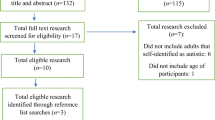Abstract.
Background and objectives:
The Strengths and Difficulties Questionnaire (SDQ) is a short assessment instrument which addresses positive and negative behavioural attributes of children and adolescents and generates scores for clinically relevant aspects. Although this brief questionnaire has been widely used in Germany to gather information from parents, teachers, and older children themselves, normative results obtained with the German version have not yet been reported to the international scientific community. To allow comparisons with SDQ findings in other countries, normative data for the German parentrated form as well as a communitybased evaluation of scale properties are summarised and complemented by results obtained in a number of clinical samples.
Methods:
Parent ratings were collected for a community-based sample of 930 children and adolescents aged between 6 and 16 years, in which both genders and all age levels were equally represented. Statistical evaluation of psychometric properties included a factor analysis verifying the proposed scale structure, assessment of scale homogeneities, and determination of age, gender and social class effects. Based on the distributions of SDQ scores observed in this normative sample, recommended bandings identifying normal, borderline, and clinical ranges were defined for each scale.
Results:
Exact replication of the original scale structure, satisfactory internal reliabilities, and observation of the expected associations with age and gender confirmed the equivalence of the German SDQ parent questionnaire with the English original. Differences between community-based results and clinical groups provided descriptive evidence of a dramatic impact of clinically defined psychiatric status on SDQ scores.
Conclusions:
After evaluating parent ratings obtained in a community-based sample, the German SDQ was shown to possess favourable psychometric properties. Thus, the German translation of this popular and versatile instrument seems to be a similarly reliable and useful assessment tool as the original English questionnaire.
Similar content being viewed by others
Author information
Authors and Affiliations
Corresponding author
Rights and permissions
About this article
Cite this article
Woerner, W., Becker, A. & Rothenberger, A. Normative data and scale properties of the German parent SDQ. European Child & Adolescent Psychiatry 13 (Suppl 2), ii3–ii10 (2004). https://doi.org/10.1007/s00787-004-2002-6
Issue Date:
DOI: https://doi.org/10.1007/s00787-004-2002-6




